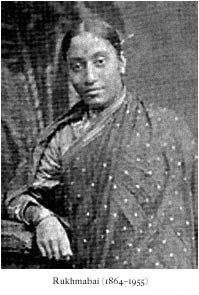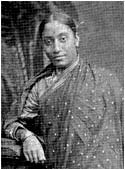


A Heroic Indian Girl Stands Alone Against Laws Allowing Sex With Children.
In the late nineteenth century, the age at which a girl can legally consent to sex was a contentious question in England and the United States. The age-of-consent issue was also at the center of a major case in India, where a "Hindoo" girl refused to submit to a marriage forced on her as a child. The case resulted in the Indian age of consent being raised from ten years of age to twelve.
The debate over the age of consent roiling England was built on the assumption that young victims of sexual assault were "daughters of the people"—that is, that they were home-grown and therefore worth protecting. Few English sex-law reformers gave a damn about the millions of girls under British rule in India, even the ones taken daily as child brides. Everyone applied different standards where the colonies were concerned. The idea of imposing an age of consent of sixteen on India, in line with England's new law, never came up. In fact, the age was only raised to twelve (from ten) in 1891, after a furious debate and the well-publicized travails of a "Hindoo lady" named Rukhmabai, who was sued in Bombay for refusing to submit to a marriage forced on her as a child.
The trials of this media-savvy young woman, and the intense publicity her case received worldwide, showed the difficulties of applying English sexual standards in the colonies. In this case, British support for a low age of consent for Indian girls was tied to its efforts to keep its most prized foreign possession.
Rukhmabai, the daughter of an educated Hindu family, had been married off to Dadaji Bhikaji (variously described in the press as "ignorant," "idle," a "boor," and a "coolie") in 1876, when she was eleven and he nineteen. The marriage was never consummated, and she remained with her stepfather until 1884, when Dadaji demanded that she come to live with him. Bucking thousands of years of tradition, she refused. He then went to the Bombay High Court to get an order forcing her to comply. Dadaji lost the first stage of the case, when the British judge ruled that there was no marriage because there had been no sex, and because his claim for "restitution of conjugal relations" had no root in Hindu law. Dadaji appealed and won; the higher court found that while native law didn't approve such a suit, it didn't forbid it either. Rukhmabai was ordered to go to her husband, or to jail for six months. Her stepfather then paid Dadaji two thousand rupees to drop his suit, after which Rukhmabai traveled to England to study medicine and become a physician.
1 2